Estimated reading time: 7 minutes
Have you ever wondered how your betta fish perceives the world around it? Betta fish, known for their vibrant colors and flowing fins, have an astonishing ability to perceive over 300 different hues!
This article will delve into the fascinating world of betta vision, shedding light on questions like whether they can see color or differentiate shapes. So let’s dive in and explore this incredible underwater vista through our little aquatic friend’s eyes!
Key Takeaways
- Betta fish have excellent vision and can see colors, shapes, and objects in their environment.
- They can perceive over 300 different colors thanks to specialized cells called cones in their eyes.
- Betta fish struggle with depth perception and cannot see well in the dark.
- Maintaining proper water quality, using appropriate lighting, providing a balanced diet, monitoring for eye diseases, and seeking veterinary advice when needed are crucial for maintaining betta fish’s vision.
How far can bettas see?
Betta fish have excellent vision, allowing them to perceive colors, shapes, and objects in their environment. They can see up to a distance of about 3 feet and have specialized cells called cones that enable them to see red to blue colors.
Betta fish can see very well. Their eyes are on the sides of their head so they can look in all directions. They have a wide field of vision that goes almost 180 degrees around them.
This means that bettas can see things far away from their tank too! Even shapes are clear to them if the thing is close enough. However, when it comes to seeing in dark places, betta fish don’t do as well. Bright colors remain visible for them even in dim light though!
Can betta fish see color?
Betta fish can see color. In fact, they can see over 300 different colors! Like humans, reds, blues and greens are all colors that bettas can spot. This is thanks to the many cones in their eyes, which allow them to see subtle color shades.
Humans don’t have as many of these cones. That means betta fish can pick up color wavelengths that our eyes cannot see.
In nature, Siamese fighting fish or betta fish might look dull brown or green. However, when we keep them safe in a tank, they show us more shiny and bright colors! Their eye colors also vary from black to white and even yellowish tints.
So yes, not only do bettas enjoy a world full of color but they bring a dash of it into ours too!
Can they see depth?
Betta fish have a hard time seeing depth. But they have another way of sensing their surroundings.
Look at the side of your betta. There’s a line that curves from the head to the tail. That line is the lateral line. Most times, it’s darker than the scales and skin. Bettas can’t see well in the dark–but their lateral lines have small holes which sense water pressure changes. They use water pressure to feel where objects are instead.
They see colors but not how deep those colors go. So, while your pet fish may notice you near the tank, it has trouble knowing just how close you really are!
Can betta fish see in the dark?
Betta fish do not have the ability to see well in the dark. They have poor night vision because of their iris, which is responsible for controlling how much light enters their eyes.
Without sufficient light, betta fish cannot see clearly and may struggle to navigate their surroundings. They rely on light to see properly and cannot see in total darkness. However, betta fish have a special structure called tapetum lucidum, which helps them see in low-light conditions by reflecting light through their retina.
This mechanism allows them some visibility even when it’s dimly lit, but their night vision is not as strong compared to other fish species that can thrive in complete darkness.
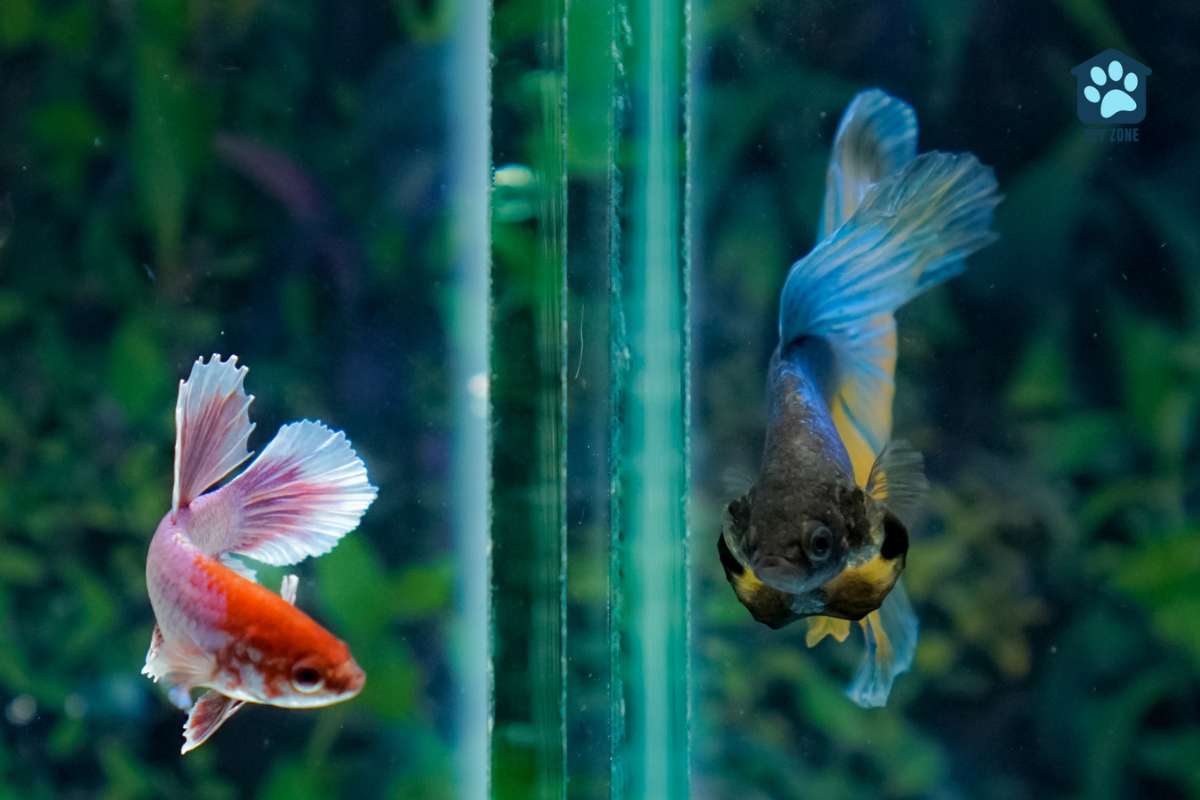
Aquarium Light Conditions and Other Tips for Better Betta Fish Vision
Use appropriate lighting
Proper lighting is important for maintaining the vision of betta fish. Here are some tips for using appropriate lighting:
- Provide a light source: Betta fish need a source of light to see their surroundings and find food. You can use artificial lights if there is no natural light available.
- Avoid bright lights: Betta fish prefer low to moderate light conditions, so it’s best to provide soft lighting in their tank. Avoid using bright lights that can cause stress or discomfort.
- Use a timer: It’s recommended to have a day and night cycle for your betta fish. Using a timer for the lights can help mimic the natural day and night cycle, allowing your betta fish to rest and maintain their natural behavior.
- Consider LED lights: LED lights are energy-efficient and can provide the right amount of lighting for your betta fish tank. They also produce less heat, which is beneficial for maintaining water temperature.
- Monitor for algae growth: Excessive lighting can promote algae growth in the tank, which can affect water quality and visibility for your betta fish. Regularly clean the tank and monitor the lighting duration to prevent algae buildup.
Provide a balanced diet
To keep your betta fish healthy, it’s important to provide them with a balanced diet. Here are some key points to remember:
- Betta fish prefer a diet that includes meat, such as bloodworms, brine shrimp, and daphnia.
- Make sure their diet contains protein, fat, fiber, phosphorus, carbohydrates, calcium, and vitamins for optimal nutrition.
- A high protein diet is essential for betta fish’s well-being.
- Consider adding freeze-dried or live food to their diet for additional benefits.
- Avoid overfeeding your betta fish as it can lead to obesity and other health problems.
Ensure proper water quality
To keep your betta fish’s vision in good shape, it’s important to make sure the water in their tank is clean and healthy. Here are some tips to ensure proper water quality:
- Change the water regularly: Regularly changing the water, at least once a week, helps remove any buildup of waste or toxins that can harm your betta fish’s eyesight. Fresh, clean water is essential for their overall health and allows your betta fish to see clearly.
- Use a filtration system: A good filtration system helps maintain water quality by removing impurities and providing oxygenation. It also helps to circulate the water, preventing stagnant conditions that can be harmful to your betta fish’s eyes.
- Test the water parameters: Use a testing kit to monitor the levels of ammonia, nitrites, nitrates, and pH in the tank. These parameters should be within the appropriate range for betta fish to ensure optimal health and vision.
- Avoid overcrowding: Overcrowding the tank can lead to poor water quality due to excess waste being produced by too many fish. Make sure your betta has enough space to swim freely without compromising the water conditions.
- Maintain a balanced ecosystem: Introduce live plants into your betta’s tank as they help absorb excess nutrients and provide natural filtration. Live plants also create hiding spots and stimulate natural behaviors, promoting overall well-being.
Monitor for eye diseases
To keep your betta fish healthy, it’s important to monitor their eyes for any signs of diseases. Here are some key tips to help you take care of their vision:
- Regularly check your betta fish’s eyes for any cloudiness or haziness, as these can be signs of fungal or bacterial infections.
- Look out for fluid buildup in the eyes, which is a symptom of dropsy, another common eye disease in bettas.
- Keep an eye on the overall appearance of their eyes and ensure they do not have any unusual discoloration or swelling.
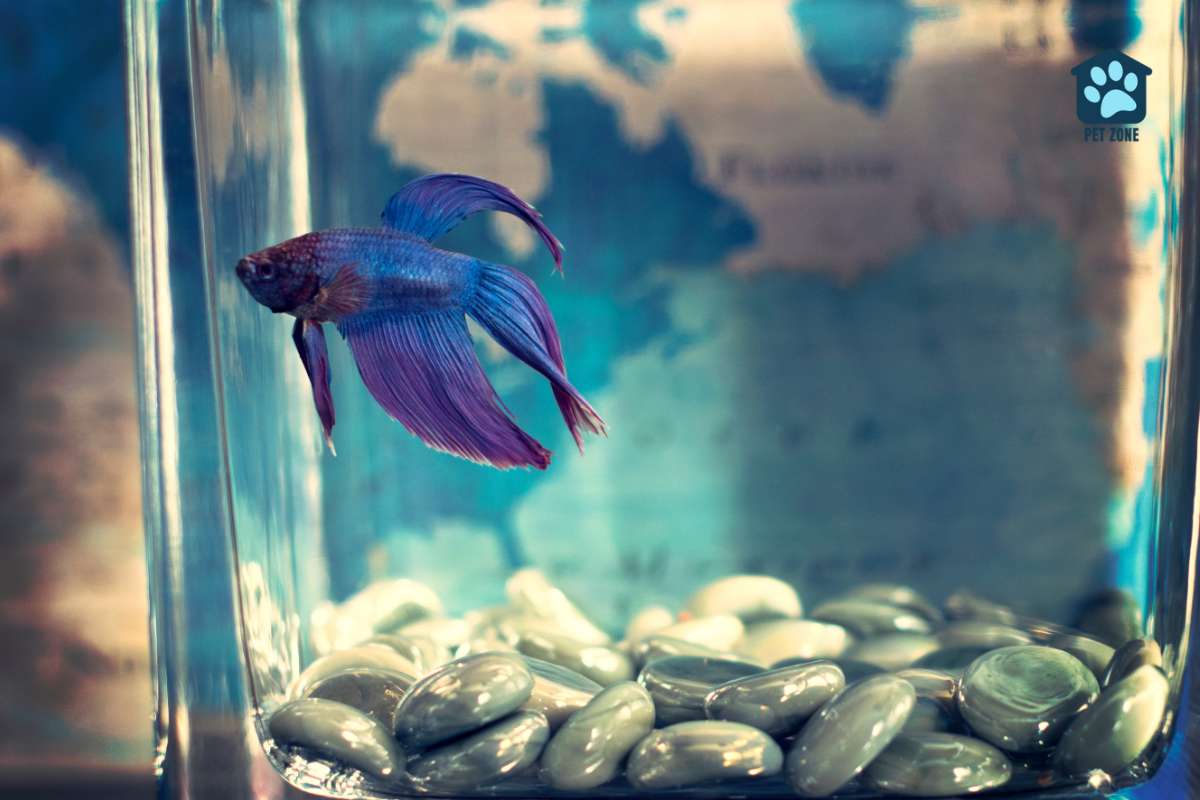
Conclusion
Betta fish have impressive vision capabilities. They can see a wide range of colors and are able to perceive shapes and objects in their surroundings. By providing them with the right care, including proper water quality, lighting, and a balanced diet, we can help maintain their excellent eyesight and ensure they enjoy a vibrant and visually stimulating world.
As an Amazon Associate I earn from qualifying purchases.



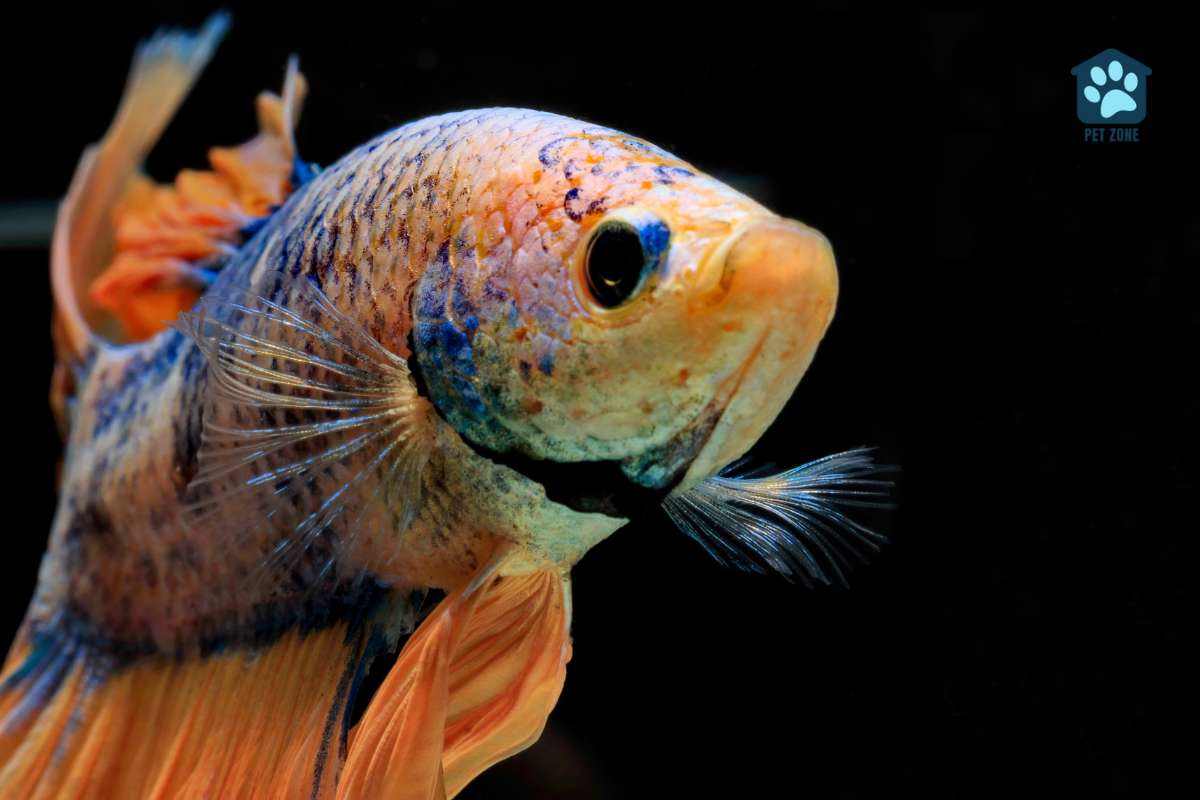

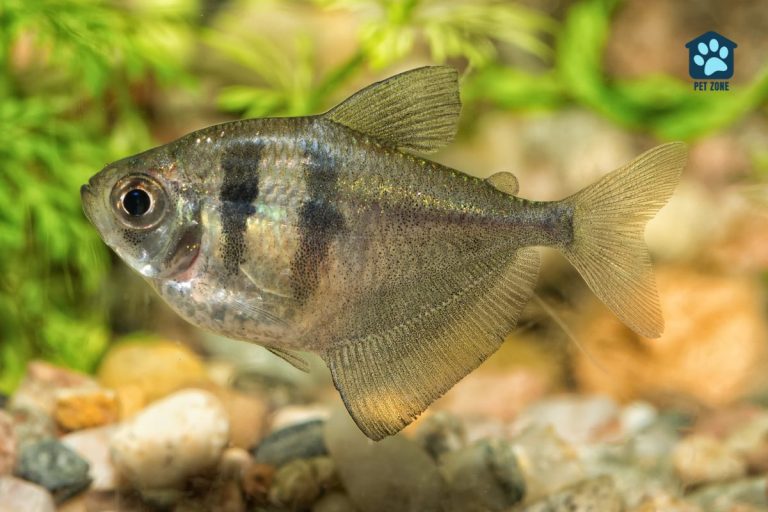
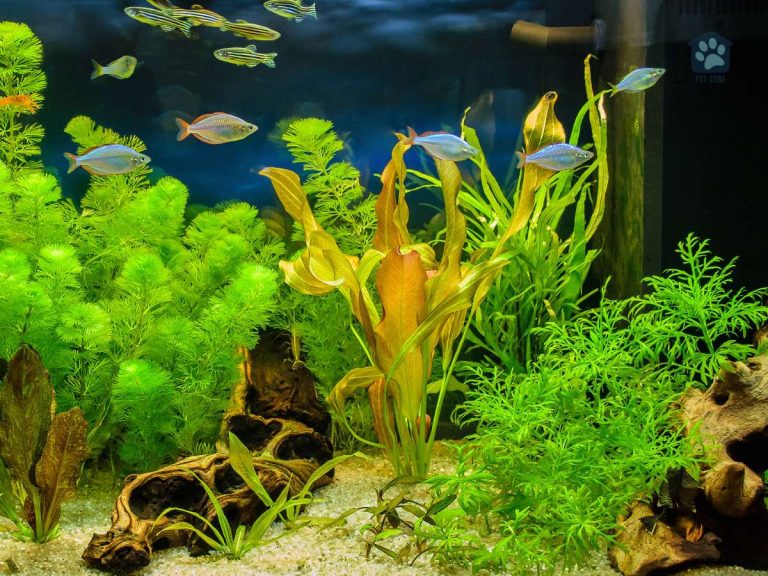

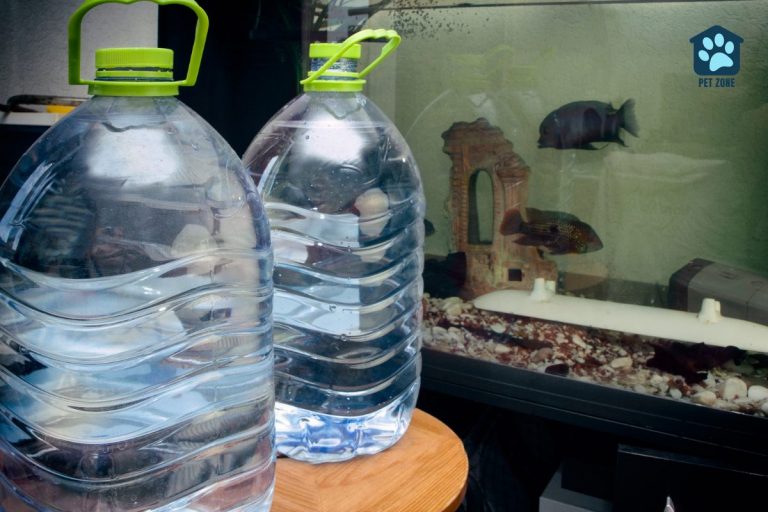
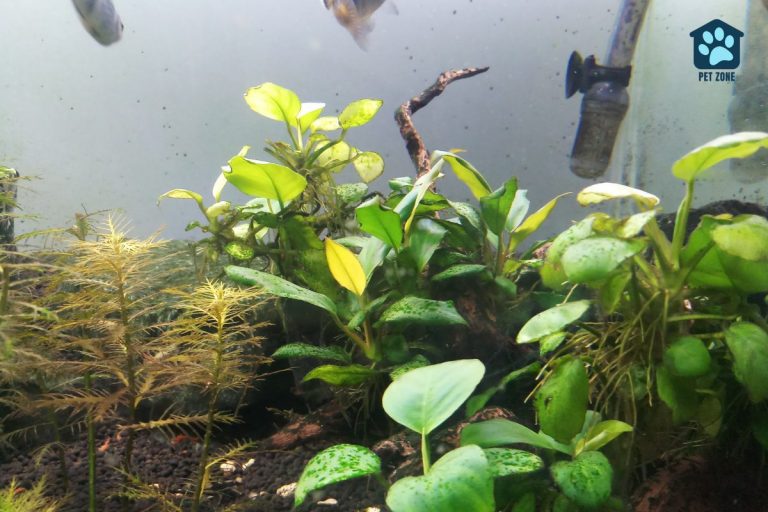
I have never thought about this, but this is fascinating information!
I am truly fascinated to learn more about betta fish. I feel like they are a wonderful kind of fish to keep in my home. Maintenance is needed for keeping the betta fish in good condition but it is every bit worth it. Awesome read!
I think I need to get a betta fish today! So interesting!
I used to have Beta fish and I never knew this about them, I also didn’t consider investigating more on what they’re needs were. Thank you so much for sharing information like this so we know how we can make our pets feel better when we decide to bring them home.